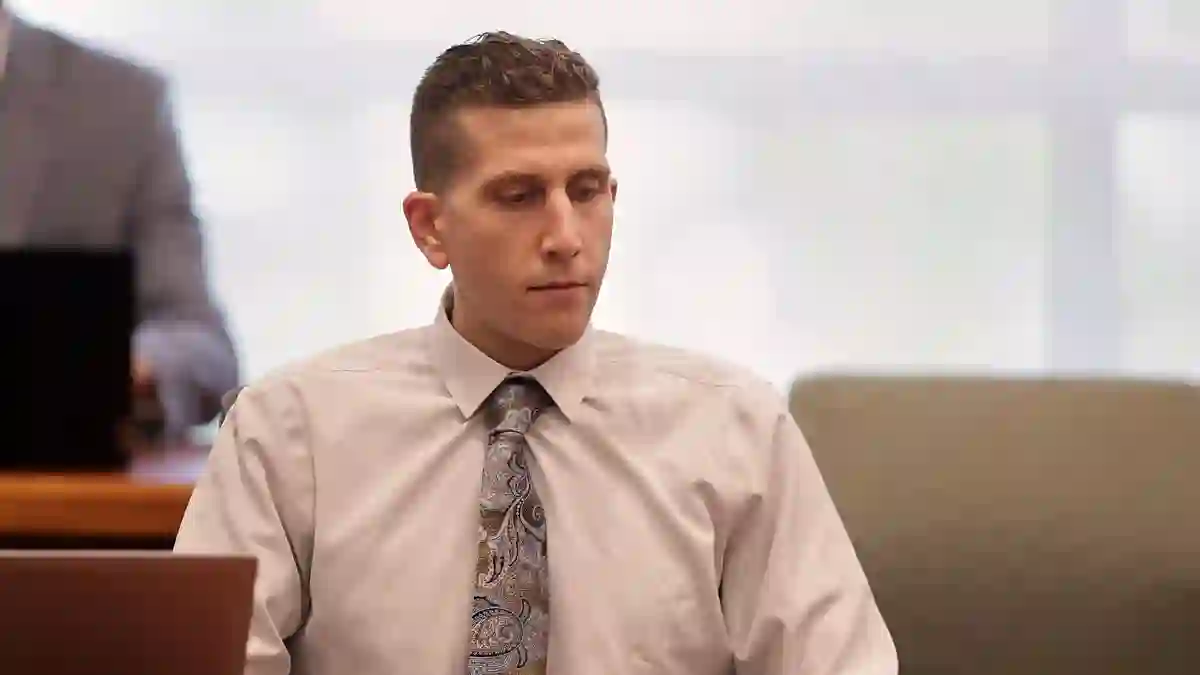For the residents of Moscow, Idaho, the pain from one of the most horrifying campus tragedies in U.S. history never really faded.
Now, nearly two years after four University of Idaho students were brutally murdered in their off-campus home, the man accused of the killings — Bryan Kohberger — has finally spoken in court, admitting guilt as part of a plea deal that could spare his life.
Kohberger Pleads Guilty in Shocking Courtroom Moment
In a stunning turn of events, 30-year-old Bryan Kohberger pleaded guilty to the murders of Kaylee Goncalves, Madison Mogen, Xana Kernodle, and Ethan Chapin.
Dressed in a light gray shirt and patterned tie, he entered the Ada County courtroom on July 2 and gave a slight smile to his attorney before telling the judge — for the first time — that he was guilty.
“Yes,” he answered when asked directly if he was pleading guilty because he was, in fact, guilty.
His admission could mean he’ll spend the rest of his life behind bars without the possibility of parole.
But the deal still needs the green light from Judge Steven Hippler.
The Deal That Divides a Community — and the Victims’ Families
The plea bargain has stirred intense emotions.
Some families support it, hoping to avoid a drawn-out, painful trial.
Others, especially the family of Kaylee Goncalves, feel deeply betrayed.
Her father, Steve, lashed out at prosecutors, accusing them of going behind the families’ backs and making a deal with “the devil.”
“He didn’t even pretend to negotiate with us,” he told reporters outside the courthouse.
For them, sparing Kohberger the death penalty isn’t justice — it’s a gut punch.
Tension Runs High in the Courtroom
Inside the courtroom, families and friends of the victims filled the benches.
Some held back tears, others watched quietly.
Kaylee’s mother, Kristi, was visibly upset as the judge outlined how the hearing would proceed.
Meanwhile, Kohberger appeared emotionless, sitting still as he listened to the charges and conditions of the deal being read aloud.
Questions Linger: Did He Know the Victims?
Despite the guilty plea, many troubling questions remain unanswered.
Investigators have never found any digital or personal connection between Kohberger and the four students.
There’s still no official explanation for why he targeted that specific house or what his motive might have been.
Some sources suggest Madison Mogen may have been the primary target, based on the path the killer took inside the home — but that has never been confirmed.
The surviving roommates, who weren’t harmed during the attack, also had no known connection to Kohberger.
Public Reaction: Anger, Relief, and Unanswered Prayers
The community response has been mixed. Some locals in Idaho say they’re relieved that the nightmare may finally be over.
Others feel the justice system took the easy way out, allowing a confessed killer to dodge capital punishment.
Outside the courthouse, a group of true crime followers even lined up at 4 a.m. to get seats for the hearing — a reflection of the national fascination and heartbreak surrounding the case.
A Father’s Fury and a Family’s Protest
Steve Goncalves has been one of the most outspoken voices among the victims’ families.
On the day of the hearing, he stood outside the courthouse in protest instead of entering the courtroom.
He made it clear that four life sentences won’t be enough for the man he believes deserves execution.
His family even helped push a law in Idaho to reinstate the firing squad as a legal execution method.
The Deal’s Loophole and Legal Limbo
Though Kohberger has accepted the plea deal, there’s still a chance the judge might not approve it.
And even if it is accepted, families may never get the full truth.
Legal experts say that the sealing of evidence during trial preparation might be lifted now that there’s no jury to influence — but it’s not guaranteed.
Some victims’ loved ones fear that unless Kohberger is forced to reveal exactly what happened and why, the most painful questions will never be answered.
The Prosecutor Under Fire
Latah County prosecutor Bill Thompson is facing fierce criticism.
Some families, particularly Kaylee’s, accuse him of caving under pressure and trying to quietly exit the case before retirement.
In a scathing social media post, Kaylee’s family called Thompson a “coward” who struck a deal without courage or integrity.
The prosecutor hasn’t commented publicly, but speculation is growing that he didn’t want to handle a lengthy capital case in the final years of his career.
Kohberger’s Past and a Haunting Break-In
Kohberger, a criminology graduate student, was previously investigated in connection to a home invasion in Pullman, Washington, just 10 miles from the murder scene.
Though no charges were filed then, the eerie similarities between the two cases raise even more unsettling questions about his behavior and intentions.
What Comes Next?
If the plea is accepted, sentencing will likely happen in July. Kohberger’s admission marks the end of a long legal battle — but not the end of grief, anger, or speculation.
For some families, it may offer closure.
For others, it’s just another chapter in a story that still feels unresolved.
The wounds left by the murders of four bright, young college students may never fully heal.
But as the court proceedings wind down, the demand for answers, truth, and justice remains stronger than ever.

